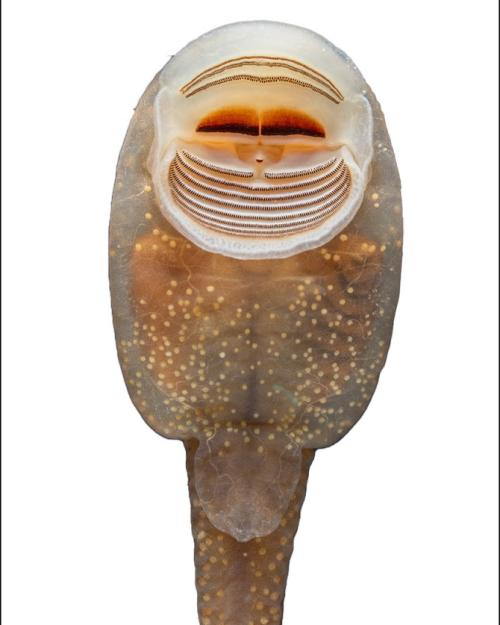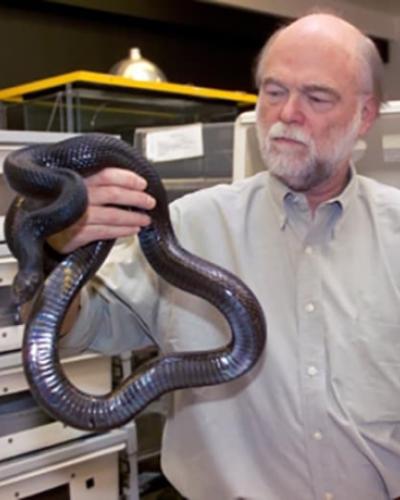Described by one former student as the “mythical-herpetological-greene-giant,” Harry Greene, professor of ecology and evolutionary biology, Stephen H. Weiss Presidential Fellow and Faculty Curator of Herpetology at the Cornell University Museum of Vertebrates, is about to retire. But before he does, friends, colleagues and former students will gather at the Laboratory of Ornithology on Saturday, Oct. 8, for “GreeneFest,” a celebration of Greene’s science and of the lives he has influenced.
“What has always amazed me is Harry’s ability to explain complicated aspects of natural history in a way that makes it both easily understood and fascinating,” wrote conference organizer Jonathan Losos, a former graduate student of Greene’s, in his online tribute. “His vertebrate natural history and herpetology teaching not only propelled scores of students into professional study, but to a much wider audience inculcated a love of the natural world.”
Many of his former graduate students will speak at the daylong event. The talks range from reflections on Greene’s scientific interests, such as those on genetic rewilding and species delimitation in snakes, to his influence as a teacher and his eloquent writing about natural history. Greene will speak, as well, in a tongue-in-cheek response titled “Many Happy Days I've Squandered.”
The recipient of an E.O. Wilson Award from the American Society of Naturalists, Greene also received a PEN Literary award for his book, “Snakes: The Evolution of Mystery in Nature” (UC Press), which was also a New York Times Notable Book. His most recent book, “Tracks and Shadows: Field Biology as Art” (UC Press) is an autobiography through which Green shares his wonder for snakes, his passion for studying and understanding natural history, and his belief in the importance of sharing the love of nature with humanity.
Greene’s research interests focus on behavioral evolution, community ecology and conservation biology, with particular attention to mammals, lizards and snakes, particularly vipers. His research techniques emphasize direct observation, facilitated by radiotelemetry, and the use of museum specimens for information on distribution, diet, and reproductive biology. He works mostly in Latin America and the U.S.-Mexico borderlands, addressing questions such as the origin of the rattle, factors controlling local and regional species richness, and ways that science enhances nature appreciation.
GreeneFest requires registration and includes a fee; click here for more information.
Linda B. Glaser is a staff writer for the College of Arts and Sciences.





